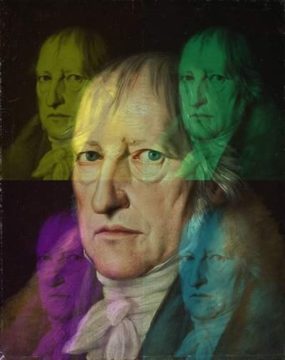by Chris Horner

Among the books of the nineteenth century that have something important to say to us now Hegel’s Elements of the Philosophy of Right (1820) deserves a prominent place. It’s not the obvious contender for a popular read in the 21st century. He doesn’t make it easy for himself, if getting readers was the aim as his ‘grotesque and rocky melody’ (Marx) takes some getting used to, and one has to work a bit to to grasp his arguments. So its not a surprise that is more written about than actually read. This is a pity, as it is right up there with Plato’s Republic and Hobbes’ Leviathan as one of the great works of ethical and political philosophy, with arguably even more direct and relevant things to tell us about our society than those other two classics. It’s a text that has been seriously misunderstood and misrepresented – most notoriously by those who represent him as having announced ‘the end of history’. It is true that something, for Hegel, is coming to an end in our time, but it isn’t exactly history. Hegel gives us an acute and pressingly relevant diagnosis of both the promise of modernity, and the contradictions that threaten it. Citizens in the age of Trump, Johnson, Xi Jinping and Biden would do well to attend to what he has to say in these pages.
It is a troubling text for liberals, not because it is anti liberal in the sense of being opposed to the values liberals hold dear (dignity of the individual, freedom of conscience, rights and so on) but rather because its author regards the insights of liberals as dangerously limited. Liberalism, with its focus on the freedom of the individual, sees the function of the state as guarantor of the freedom of the individual, in the context of a civil society and free market. But for Hegel, genuine freedom means more than this. Read more »
